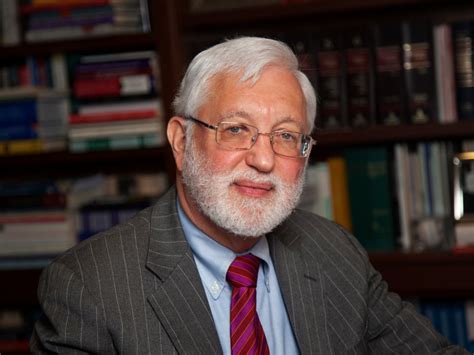A Quote by Walter Lippmann
Since my moral system rests on my accepted version of the facts, he who denies my moral judgments or my version of the facts, is to me perverse, alien, dangerous. How shall I account for him? The opponent has always to be explained, and the last explanation that we ever look for is that he sees a different set of facts. Such an explanation we avoid, because it saps the very foundation of our own assurance that we have seen life steadily and seen it whole.
Related Quotes
What are the facts? Again and again and again – what are the facts? Shun wishful thinking, ignore divine revelation, forget what “the stars foretell,” avoid opinion, care not what the neighbors think, never mind the unguessable “verdict of history” – what are the facts, and to how many decimal places? You pilot always into an unknown future; facts are your single clue. Get the facts!
An application of judicial power that does not rest on facts is worse than mindless, it is inherently dangerous. If its deployment does not rest on facts - cold, hard, solid facts, established either by admissions or by trials - it serves no lawful or moral purpose and is simply an engine of oppression.
I take facts about reasons to be fundamental in two ways. First, I believe that facts about reasons are not reducible to or analyzable in terms of facts of other kind, such as facts about the natural world. Second, I believe that reasons are the fundamental elements of the normative domain, and other normative notions, such as goodness and moral right and wrong can be explained in terms of reasons.
[The scientist] believes passionately in facts, in measured facts. He believes there are no bad facts, that all facts are good facts, though they may be facts about bad things, and his intellectual satisfaction can come only from the acquisition of accurately known facts, from their organization into a body of knowledge, in which the inter-relationship of the measured facts is the dominant consideration.
Appearances are not reality; but they often can be a convincing alternative to it. You can control appearances most of the time, but facts are what they are. When the facts are too sharp, you can craft a cheerful version of the situation and cover the facts the way that you can covered a battered old four-slice toaster with a knitted cozy featuring images of kittens.
Our alleged facts might be true in all kinds of ways without contradicting any truth already known. I will dwell now on only one possible line of explanation, - not that I see any way of elucidating all the new phenomena I regard as genuine, but because it seems probable I may shed a light on some of those phenomena. All the phenomena of the universe are presumably in some way continuous; and certain facts, plucked as it were from the very heart of nature, are likely to be of use in our gradual discovery of facts which lie deeper still.
Facts are neutral until human beings add their own meaning to those facts. People make their decisions based on what the facts mean to them, not on the facts themselves. The meaning they add to facts depends on their current story … facts are not terribly useful to influencing others. People don’t need new facts—they need a new story.
People come to have different moral beliefs because they have different non-moral beliefs about relevant facts. People are disposed to believe whatever justifies the practices and institutions that benefit them. But I argue that not all moral differences can be explained away in such a fashion. Some of the most profound disagreements come from differences in priority assigned to values such as relationship and community on the one hand, and individual rights and personal autonomy for the individual, on the other hand.

































